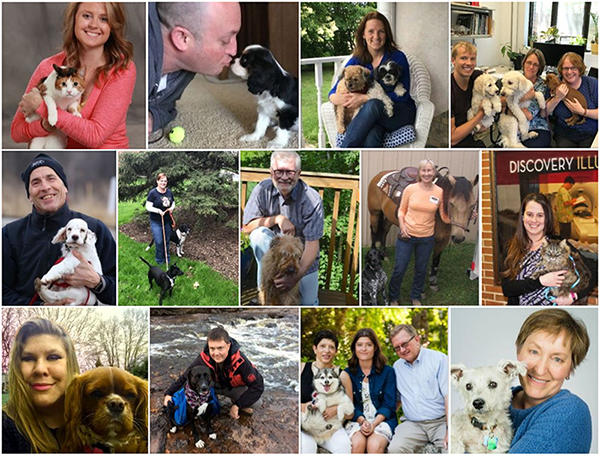Our mission is to benefit animal and human health through excellence in science and education.
VBS Virtual Tour
For six decades, internationally-recognized programs in basic and translational biomedical research educate graduate, post-graduate and veterinary students in the basic biomedical and paraclinical sciences.
Department of Veterinary and Biomedical Sciences today:
- over 80 scientists, researchers, faculty and graduate trainees
- over 42,300 sq. ft. of laboratory space with state of the art equipment
- over $15 million active research funding
- teaching over 40 undergraduate, professional and graduate courses
Quick facts
- The Department is home to the Pomeroy Endowed Chair in Avian Health.
- We have research expertise in Cancer, HIV - Aids, Genetics, and Infectious Diseases (e.g. COVID-19/Coronavirus, Zika, and Chronic Wasting Disease).
- We host seasonal seminars that features researchers from around the globe.
Research
Our scholarly investigations address important questions affecting acute and chronic diseases affecting animals and people. Utilizing cutting-edge scientific methods, our four research clusters explore the genetic, microbial, and immunologic underpinnings of infectious disease, as well as the biological substrates of persistent or recurring diseases. Our discovery of these disease processes leads to the identification of hitherto unknown disease-modifying molecular targets and innovative strategies to ameliorate these challenges to animal and human health and well-being.
Education
We educate undergraduate, graduate, and professional veterinary medicine students and undertake research to design and assess innovative teaching practices and outcomes. Our courses have a common focus on the complex interrelationship between human and animal health. Our students develop communication and critical thinking skills ensuring their success in diverse careers ranging from human or animal health care, basic science research, agricultural science, and health policy.
Outreach
Students, staff and faculty in the department endeavor to connect with and learn from our local community, research collaborators, industry stakeholders, and state and federal entities. We educate and inspire future scientists and medical professionals, and solve problems impacting the health of companion animals, food- or fiber-producing animals, and people.
Our extended family
The VBS faculty and staff have a personal stake in Veterinary Biomedical Science teaching, research, and service. Visit our flickr page.
